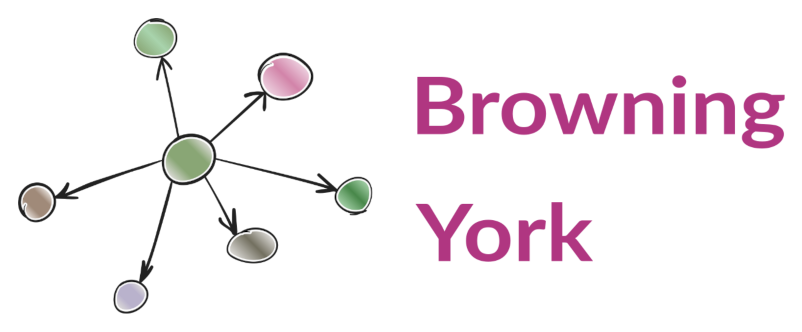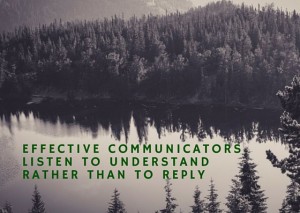As we near the end of 2020 (thank goodness!), we all face continued uncertainty. As well as being unsettling, this also makes the communication we can plan for uncertain. In my last guest blog of the year, trainer Rhian Morallee shares her thoughts on the personal communication skills we will all need next year, no matter what happens.
In today’s unsettled, world, if you had to choose one skill to work on to help you succeed in life what would it be? For me, it would be effective communication skills. Effective communication skills are absolutely imperative to your future success and are vital to the success of the organisation you work for.
Being able to communicate well is a life skill which will help you through your career to:
- build relationships
- concisely explain important details
- obtain good outcomes
- help you navigate the often turbulent path of life.
Personal style
How you communicate can also make a big difference in how you are perceived. Do you communicate with patience and kindness, check understanding, be open to feedback or do you bark orders and expect everyone to listen, understand and then react badly when they don’t?
We each have a communication style whether we realise it or not. What’s yours?
Does it match your values and how you would like to be seen? Is it advantageous to the organisation you work for, or detrimental?
Elements of organisational communication
Have you ever thought, what is needed in an organisation, by individuals to bind the teams and work well together? To reach the desired goals?
Put simply, communication can be broken down into three main elements:
- The sender
- The message
- The recipient
We all know that there’s so much more to it than that. So, what should you consider as an individual to become an effective communicator?
We believe that an individual needs to focus on these four different elements of communication skills;
- verbal communication
- non-verbal communication
- written communication
- listening
Verbal communication
Did you know only 7% of your message is verbal? The rest is non- verbal. However, this can increase with the more effectively you manage your communications. Verbal communication is speaking with others, either face to face or via an interface like a telephone or computer and/or via a platform. It is not just about what you say, but how you say it. It includes pitch, tone, cadence that occurs when you are speaking, either consciously or subconsciously. The most vital part to note is that if you can see someone, whether face to face or through a platform – both verbal and non-verbal communication cannot be separated. Essentially you need to understand verbal and non-verbal communications to be an effective communicator. It isn’t difficult it just takes a little time, knowledge and practise.
Non-Verbal Communication
“Actions speak louder then words”, is a commonly heard expression and as only approximately 7% of your message is verbal then it clearly speaks the truth. Facial expression, micro expressions, eye contact, posture, and hand gestures are all types on non-verbal communication and often someone’s body language can give away their true feelings about something and may not match what they are actually saying. By learning more about observing these and also ensuring your match your message you can increase your communication skills.
Written Communication Skills
These are self explanatory and used to include written memo, reports, essays, books etc, however with digital progress, written communication is expanding into the realm of tweets, posts, emails and much more lasting content. There are three overarching matters to note here in my view:
1. Ensure your written content contains the message you wish to communicate succinctly and responsibly.
2. Does it match your personal brand? What you wish to be known for – not sloppy, with spelling mistakes and an ambiguous message.
3. With the ever increasing online presence, remember what you write could be there forever more…ensure that you are comfortable with what it says and how it says it.
Listening
This is not often thought of as a communication skill, however a major part of being an effective communicator is listening. And actually active listening. How well do you listen? Not listen to answer the question asked but listen to understand. This to me is the ultimate communication skill that if demonstrated is the gold standard of an effective communicator and can bring together all the other aspects of communication.
Once all of these have been considered, the overall key in my view to all of this, is knowing and understanding your audience.
Factors for you to consider
The most effective communicator considers these factors:
- the most appropriate communication channel,
- adapts their message to this channel -simplifies the message to reduce misunderstanding by the recipient or recipients
- seeks feedback to check the understanding
- reflects on the above
- attempts to correct any confusion or misunderstanding as soon as possible.
Understanding how you communicate and what you can improve on or do differently is the first stage in becoming a more effective communicator. If you can demonstrate a high level of each of these aspects then you will become an asset to your organisation, as you will be leading the way in helping to bind the organisation together and work towards their collective goals.
As well as improving your career prospects.
All of this takes practise. What is so great about communication skills is that they can be practised anywhere and, in any situation, whatever your age. The earlier you start working on your communication skills, the better.
As Albert Einstein once said
Information is not knowledge. The only source of knowledge is experience.
Rhian Morallee is Solicitor and Co-Founder of Pursuit of Growth bridging the gap between education and the workplace by offering employability skills training to schools, corporates and individuals fit for the 21st Century.
Website: www.pursuitofgrowth.co.uk
LinkedIn Personal: Rhian Morallee
LinkedIn Company: Pursuit of Growth
Instagram: pog.pursuitofgrowth

